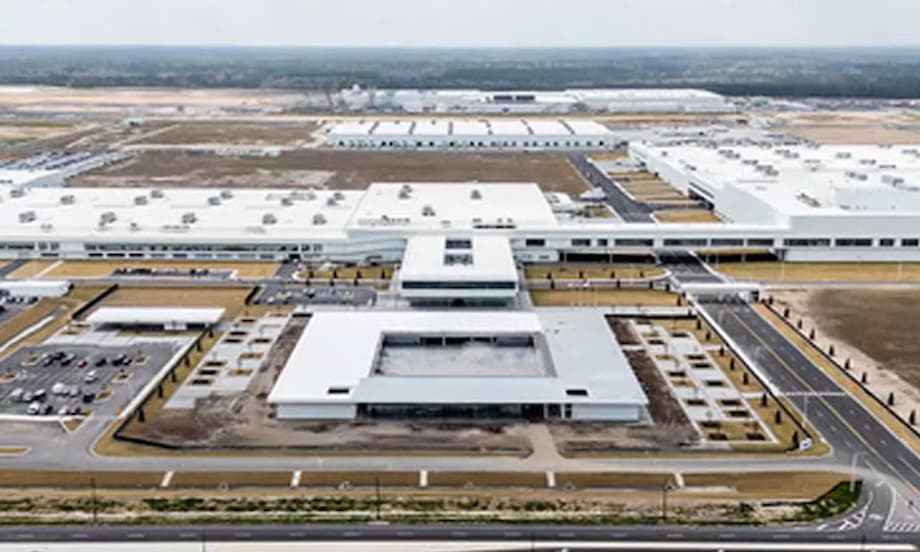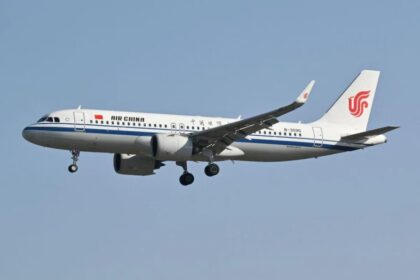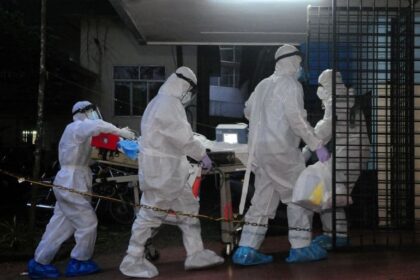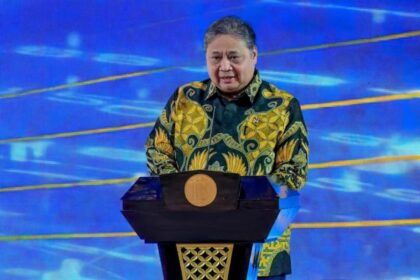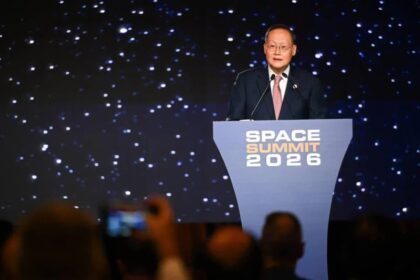A historic raid at a Georgia battery site shakes business and diplomacy
Federal agents detained hundreds of workers at a sprawling Hyundai Motor Group complex near Savannah, Georgia, in a sweeping operation that immediately halted construction of a new battery factory tied to the state’s largest economic development project. Homeland Security officials said 475 people were taken into custody at the Ellabell work site, most of them citizens of South Korea. Authorities called it the largest single site enforcement action in the history of Homeland Security Investigations. The numbers and scope thrust a high profile investment into the center of a national fight over immigration and work authorization.
- A historic raid at a Georgia battery site shakes business and diplomacy
- What happened at the Ellabell construction site?
- South Korea’s response and the diplomatic stakes
- Why are work site immigration raids rising again?
- How employment authorization rules apply
- Economic stakes for Georgia and the auto supply chain
- What this means for multinational companies and their contractors
- What to watch as the investigation unfolds
- The Bottom Line
Agents executed a search warrant as part of a months long probe into alleged unlawful hiring at the battery plant, a joint venture of Hyundai and LG Energy Solution known as HL GA Battery Company. The adjacent Hyundai electric vehicle factory, which began production last year, continued to run, but the battery project paused while investigators processed the scene. The majority of detainees were moved to an Immigration and Customs Enforcement facility in Folkston, near the Florida line, while investigators reviewed individual circumstances. As of Friday, no criminal charges had been announced. Officials said some of those initially stopped were U.S. citizens or lawful permanent residents and were released after verification.
The raid prompted a swift diplomatic response from Seoul. South Korea’s foreign ministry expressed concern and regret and said the business activities of its investors and the rights of its nationals must not be unjustly infringed during U.S. law enforcement. Embassy and consular staff were dispatched from Washington and Atlanta to provide assistance. While official U.S. figures put the total detainee count at 475, some media in South Korea reported a higher overall number and suggested that roughly 300 of the workers taken into custody were South Korean nationals. The foreign ministry said it was seeking clarity from U.S. authorities.
What happened at the Ellabell construction site?
According to Homeland Security Investigations, the operation followed months of inquiry into employment practices at the site where Hyundai and LG Energy Solution are building a new battery plant. Multiple federal agencies, including ICE, HSI, and partner agencies such as the FBI and the Bureau of Alcohol, Tobacco, Firearms and Explosives, took part. Work stopped as agents entered, lined up crews, and processed identification. Officials said some workers had crossed the border without authorization. Others had entered the United States legally but lacked permission to work or had overstayed visas.
Authorities described the operation as controlled. One person at the scene was treated for heat related illness and an agent suffered a minor laceration, but there were no major injuries. The Department of Justice said several individuals tried to flee. Local video showed officers instructing workers to cease construction and remain in place as agents executed the warrant. Workers who were verified as U.S. citizens or permanent residents were released.
Steven Schrank, the special agent in charge of Homeland Security Investigations in Georgia, said the effort reflected a focus on the integrity of the labor market.
Schrank said the operation aimed to “protect jobs for Georgians and Americans, ensure a level playing field for businesses that follow the law, safeguard the integrity of the economy, and protect workers from exploitation.”
Who was working at the site?
Investigators said those detained included people employed directly at the construction site as well as workers for contractors and subcontractors. Early statements from the companies underscored the confusion that often follows a large enforcement action. Hyundai said none of the people detained were Hyundai employees, as far as it was aware, and that it was working to understand the specific circumstances. LG Energy Solution said it was cooperating with authorities and gathering details, and a spokesperson told reporters that employees of both companies were among those taken into custody. Officials said they were still verifying employment relationships at the time of the raid.
The plant under construction, HL GA Battery Company, is designed to supply battery cells for Hyundai, Kia, and Genesis electric vehicles. The site sits beside Hyundai’s vehicle factory, which opened last year on a 3,000 acre campus outside Savannah. Together, the investments represent billions of dollars and thousands of anticipated jobs tied to the growth of the U.S. electric vehicle supply chain.
South Korea’s response and the diplomatic stakes
Seoul moved quickly to convey concern to Washington. The foreign ministry said the rights and interests of its citizens and companies should not be unjustly violated during U.S. law enforcement actions, and it formed an on site response team. Consular officials traveled to the area to assist detainees and to communicate with U.S. authorities. The case landed at a sensitive moment in the bilateral relationship, which in recent years has been defined by security cooperation and a surge of South Korean investment in U.S. manufacturing.
Recent high level diplomacy has centered on trade, investment, and tariffs. Just over a week before the raid, President Donald Trump hosted South Korean President Lee Jae Myung at the White House, where, according to U.S. media reports, the South Korean leader discussed an additional 150 billion dollars of investment plans in the United States, including battery manufacturing. In July, Seoul also discussed a broader 350 billion dollar investment plan intended to ease tariff tensions. The Ellabell project long predates these talks, but it sits neatly within that push: a multi billion dollar complex that state and local officials have touted as a cornerstone of U.S. electric vehicle ambitions.
South Korea’s message has been consistent. Its officials emphasize the need to protect both foreign investors and workers while respecting U.S. law. As the foreign ministry spokesperson put it during a press briefing in Seoul, the government expects its nationals and companies to be treated fairly in any investigation.
Lee Jae woong, a spokesperson for South Korea’s foreign ministry, said: “The economic activities of our investors and the legitimate rights and interests of our nationals must not be unjustly infringed in the course of U.S. law enforcement.”
Seoul’s protest highlights a tension that predates this administration: the United States invites factories and jobs from allied nations while tightening immigration enforcement at work sites. That friction tends to be most visible on large construction projects where global companies rely on complex chains of contractors and placements that can include foreign nationals on short term assignments.
Why are work site immigration raids rising again?
Immigration enforcement has become more aggressive since President Trump returned to the White House in January. ICE has stepped up work site operations as part of a broader pledge to conduct the largest deportation drive in U.S. history. Workplace actions have reached farms, construction projects, restaurants, and auto related facilities. The number of people in ICE custody topped 60,000 in August, the highest figure on record for the agency. At the same time, data from the Pew Research Center show the U.S. labor force lost more than 1.2 million immigrants from January through July, a mix of unauthorized migrants and legal residents.
Work site cases typically begin with tips or audits that suggest an employer has hired people without proper work authorization. Agents build cases by reviewing employment records, interviewing witnesses, and tracing hiring flows across contractors. When investigators believe there is probable cause of unlawful employment practices or related crimes, they seek a warrant. Enforcement at large construction sites often leads to temporary detentions of many workers while agents verify identities, status, and employment records.
The White House has framed the Ellabell case as part of that renewed focus on unauthorized employment, while stressing that companies remain welcome to invest if they comply with the law. A spokeswoman said the campaign targets those who do not have permission to work.
White House spokeswoman Abigail Jackson said: “Foreign workers must enter the U.S. legally and with proper work authorizations.”
Advocates for immigrant workers argue that these operations frequently snare people with no criminal history and can push vulnerable workers deeper into the shadows. Officials respond that enforcement is meant to deter illegal hiring and reduce exploitation. ICE data show Koreans are rarely among those deported compared with other nationalities, which made the Georgia figures stand out. During the 12 month period that ended September 30, ICE reported 46 removals of South Korean citizens out of more than 270,000 total.
How employment authorization rules apply
U.S. law makes it unlawful to knowingly hire or continue to employ someone who is not authorized to work. Every employer must complete a Form I 9 for each hire, checking acceptable identity and work authorization documents. Federal law allows the use of E Verify, an online system that cross checks Social Security and immigration databases, in many cases. Some states require E Verify for certain employers. Georgia requires use of E Verify for many business license renewals and for companies that contract with the state. It remains unclear which contractors and subcontractors at the Ellabell site used E Verify and how hiring flowed across layers of vendors.
Agents at the scene said detainees fell into several categories. Some had entered the country without inspection and had no path to work authorization. Others had arrived legally but had overstayed visas. A third group held a status that permitted visits but not employment, such as travel under the Visa Waiver Program (VWP). Investigators will look at how companies verified documents and whether any managers ignored warning signs or coached workers to present false papers.
Penalties vary. Civil fines can run from hundreds to thousands of dollars per violation, multiplying quickly if audits show a pattern of unlawful hiring. If prosecutors find evidence of a pattern and practice of knowing employment of unauthorized workers, criminal charges are possible, including against individuals responsible for hiring. It is too early to know where the Ellabell investigation will land. Authorities said on Friday that no charges had been filed and that the inquiry remains active.
Economic stakes for Georgia and the auto supply chain
The Ellabell complex is central to Georgia’s push into electric vehicles. Hyundai’s vehicle factory, which began producing cars last year, is valued at about 7.6 billion dollars and employs roughly 1,200 people today, with plans to grow in the years ahead. The battery plant next door, a joint venture with LG Energy Solution worth about 4.3 billion dollars, is designed to supply the cells needed for Hyundai, Kia, and Genesis electric models. Hyundai has touted a plan to produce up to 500,000 vehicles per year at the campus once fully built out. State officials have called the effort the largest economic development project in Georgia history.
The raid froze work on the battery facility, creating uncertainty around construction schedules and commissioning. Hyundai said production of electric vehicles at the vehicle plant was not affected. HL GA Battery Company said it was cooperating with authorities and paused work to assist. In financial markets, shares of LG Energy Solution fell after the news, a sign of investor concern that timelines could slip. Any prolonged delay would ripple through supplier contracts, workforce plans, and model launch calendars.
The battery plant supports U.S. policy goals tied to domestic content rules and tax incentives for electric vehicles. The Inflation Reduction Act created stronger credits for cars made with battery components produced in North America. Major automakers responded by committing to significant new battery capacity in the United States. South Korean companies, which are leaders in advanced battery technology, have been central to that buildout. A lasting interruption at Ellabell would complicate supply planning for Hyundai and Kia, and it could squeeze inventory for models that rely on batteries from that facility once it comes online.
There is also a political layer in Georgia. Governor Brian Kemp has hailed the Hyundai campus as a signature achievement for jobs and growth. The state’s Democratic Party criticized the raid as politically motivated, while the governor’s office reiterated support for enforcing immigration laws. Business groups in the region have worked to attract suppliers around Savannah and Bryan County, and local leaders expect the EV cluster to create thousands of jobs over the next decade.
What this means for multinational companies and their contractors
The Georgia case underscores the risks that global manufacturers face when building massive facilities on tight timelines. Large construction projects are complex. They rely on layers of contractors and subcontractors that recruit across states and borders. That structure can blur accountability for hiring and document verification. When authorities execute a work site warrant, questions cascade across the chain: Which company hired which worker? Who verified documents? Which managers saw red flags? Even companies with robust compliance programs can face exposure if a contractor cuts corners.
Multinational firms that move employees across borders also navigate a maze of visas and work permits. Temporary assignments that are lawful in one context may run afoul of U.S. employment rules if the person’s status does not allow work. Executives often rely on vendors to manage those details. Events in Ellabell will likely prompt fresh audits of I 9 forms, E Verify enrollment, and contract language that assigns responsibility for compliance. Insurers and lenders sometimes demand evidence of compliance as a condition for coverage or financing. Those demands may now tighten for projects that depend on large foreign workforces or complex contractor networks.
What to watch as the investigation unfolds
In the short term, immigration officers will process detainees case by case. Some will be released on their own recognizance or on bond, especially if they have community ties or pending claims. Others will remain in custody while their cases move through immigration court. Consular officials from South Korea are working to ensure access to counsel and to monitor conditions at the detention facility in Folkston.
For companies at the site, the next steps often include internal reviews, new compliance training, and closer monitoring of contractor hiring. Federal agents will seek employment records from contractors and subcontractors to trace hiring decisions. If prosecutors find evidence that managers knowingly hired unauthorized workers, they could bring charges. Civil fines for paperwork violations may follow even in the absence of criminal charges. When investigators complete the initial phase, construction could resume, though schedules may shift while contractors rebuild crews.
Policy debates will continue in Washington and in state capitals. Lawmakers who support aggressive work site enforcement argue that it protects wages and discourages exploitation. Opponents warn that large raids sweep up many people who have no criminal record and can chill investment, especially from friendly countries whose companies are building factories in the United States. The Ellabell case, set against enormous investment from South Korea in U.S. manufacturing, will become a test of how the administration balances both priorities.
The Bottom Line
- Federal agents detained 475 workers at the Hyundai complex near Savannah, a record for a single site enforcement by Homeland Security Investigations.
- Most of the people taken into custody are South Korean nationals, according to officials, and were moved to an ICE facility in Folkston, Georgia.
- The raid halted construction of the Hyundai and LG Energy Solution battery plant, while vehicle production at the adjacent Hyundai factory continued.
- South Korea protested the operation, sent diplomats to the site, and urged that the rights of its citizens and companies not be unjustly infringed during U.S. law enforcement.
- No criminal charges were announced as of Friday. Investigators are reviewing employment records for contractors and subcontractors.
- The White House said the case is part of a wider campaign against unauthorized employment and that foreign workers must have proper authorization.
- The Hyundai campus is central to Georgia’s economy and U.S. electric vehicle goals. Delays at the battery plant could affect supply plans for Hyundai and Kia.
- The case illustrates compliance risks in large construction projects that depend on complex contractor networks and international workforces.


